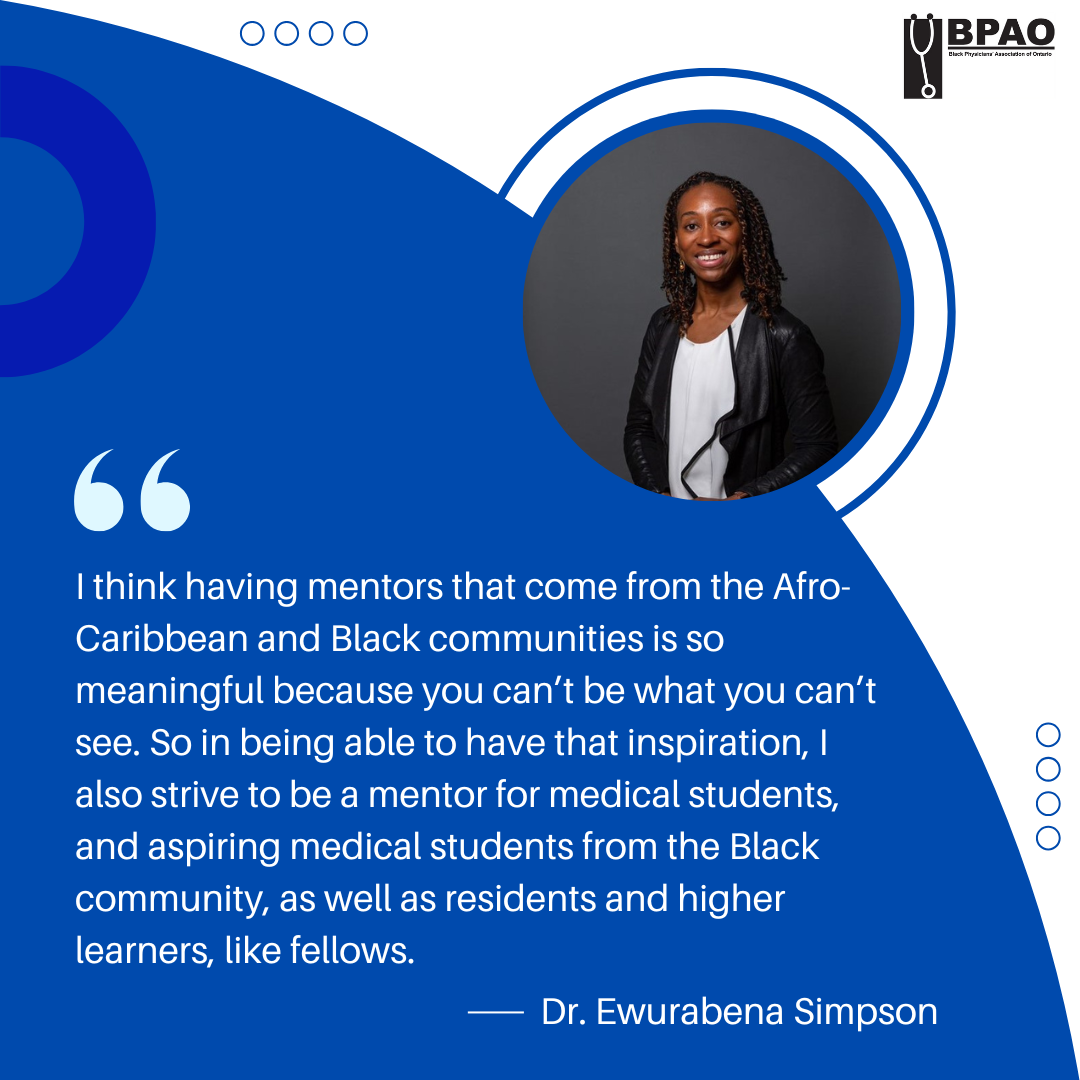A Journey of Care and Community: Dr. Simpson on Pediatrics and Advocacy
Dr. Ewurabena Simpson’s path to pediatrics began early, shaped by both family and community. As the eldest of three, she naturally took on the role of caregiver, often babysitting her younger siblings and finding joy in being around children. Her parents, both scientists, nurtured her curiosity and love of learning, making medicine feel like a natural next step.
She was also inspired by her own pediatrician, Dr. Nana Graves, a family friend from the Ghanaian community, whose care and an example left a lasting impression. Yet it was during her medical school clinical rotations that she truly recognized where she belonged. Those early exposures to pediatrics revealed how her personality and approach to care fit with the field, and she found deep reward in working with children and their families. It was a combination of connection, curiosity, and compassion that affirmed her decision to support young patients through every stage of their healthcare journey.
Her Ghanaian heritage and upbringing have guided her at every step. From a young age, she wanted to support the Ghanaian and broader Black community, inspired by her family and mentors outside the home. During her undergraduate years, guidance from Afro-Caribbean family friends, many scientists themselves, helped her navigate the path to medicine. Her parents’ encouragement reinforced not only her ambition but also the discipline and curiosity necessary for a demanding career.
Medical school brought both opportunity and challenge. As the only Black student in her class, she sometimes felt isolated and faced experiences that were difficult to navigate. Yet mentorship from faculty, family friends, and external role models provided guidance, support, and perspective. It was during these years that her interest in hematology began to take shape, though she initially hesitated, mindful of the emotional demands of caring for children with blood disorders and cancer.
After graduation, she pursued a pediatric residency at Sick Kids Hospital in Toronto, drawn to the diversity among residents, faculty, and patients. Over four years, she immersed herself in general pediatrics before embarking on three additional years of training in hematology and oncology. Working closely with children with sickle cell disease and their families, she found her clinical interests and her commitment to serving Black communities naturally converging. These experiences deepened her fascination with hemoglobinopathies and reinforced her sense of purpose. There was both clinical work and advocacy to be done.
Mentorship remained central to her journey. Influential figures such as Dr. Melanie Kirby-Allen, Dr. Isaac Odame, and Dr. Suzan Williams showed her the importance of representation in medicine. “You can’t be what you can’t see,” she reflects, a principle she now carries forward in mentoring students, residents, and fellows from underrepresented backgrounds. For Dr. Simpson, mentorship is not just about guidance, it is about opening doors and helping others recognize their potential.
Today, she emphasizes the value of mentorship for aspiring physicians. It can take many forms, from a casual conversation to a structured, long-term relationship guiding career decisions. Sometimes connections happen naturally and other times they require effort through conferences, supervisors, or outreach via social media. She encourages students to actively seek mentors, ask questions, shadow physicians, and engage with programs such as the University of Toronto’s Community of Support, available also at the University of Ottawa. These opportunities help highlight their strengths and navigate the complex path to medicine.
In her current leadership role, Dr. Simpson focuses on improving health systems for children and adolescents with chronic hematologic disorders. One of the greatest challenges she sees is identifying inequities in care. Awareness of disparities is growing, but recognition alone is isn’t enough. Objective measurement, coupled with the inclusion of diverse voices in leadership, is critical to achieving meaningful change. Listening to patients and families is central to her approach, ensuring that their experiences and needs shape the systems intended to support them.
She advises early-career physicians that making an impact does not always require large-scale initiatives. Joining advocacy groups, pursuing research on health systems and equity, attending conferences, and speaking up for patients are tangible ways to contribute. Even raising awareness of disparities in everyday interactions can make a significant difference.
For Dr. Simpson, the greatest joy comes from working directly with children and their families. The moments of connection, the conversations, the small victories, and the reassurance are what make her work meaningful. Guiding families toward healthier lives and seeing children thrive is at the heart of her professional fulfillment.
September marks both Childhood Cancer Awareness Month and Sickle Cell Awareness Month, offering an important moment to recognize the impact of these conditions. Dr. Simpson notes that pediatric cancer encompasses a wide range of illnesses that can be devastating and life-limiting. In Canada, progress has been made through awareness, activism, and advocacy, with physicians, nurses, social workers, pharmacists, allied health professionals, and families working together to improve care and outcomes.
Sickle cell disease, the most common inherited condition in the world, affects roughly 6,000 people in Canada. While many of the specialists who treat childhood cancer also care for children with sickle cell disease, access to resources and standards of care remain uneven across the country. Advocacy groups such as the Sickle Cell Disease Association of Canada and the Sickle Cell Awareness Group of Ontario continue to work to close these gaps.
Dr. Simpson highlights the importance of sustaining this momentum and calls on the community to champion initiatives that ensure every child, regardless of condition, has access to equitable, high-quality care.


